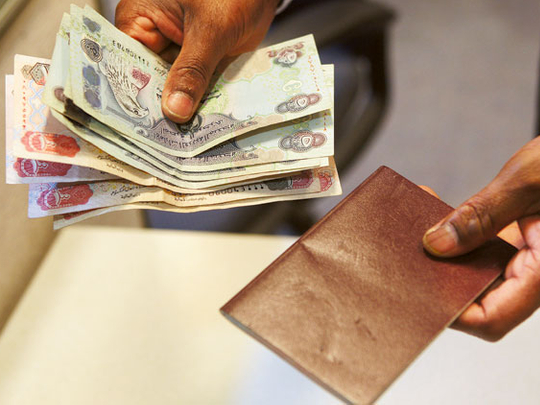
Dubai: The majority of residents in UAE have not been able to save enough money in the past year, according to new survey findings released by National Bonds on Tuesday.
The investment company’s latest savings index, which is based on the responses of nearly 1,500 participants, showed that about 85 per cent of people in UAE were not setting aside enough funds for their future in 2017.
ALSO READ:
• How to avoid going broke
• How much money UAE residents owe their banks
• Consumption, socializing drain savings
However, the good news is that 41 per cent of people in the UAE have resolved to start their “savings journey” in 2018, and an additional 57 per cent plan to increase the amount of money they set aside for the future.
There are a lot of reasons why people are not able to save, but chief among them is that they don’t know how to effectively manage their finances.
There are also some consumers who are struggling to repay their credit card debt and part of the problem is that they have borrowed more than they can afford to repay. Consumption and socializing are also draining people's money.
According to Mohammed Qaim Al-Ali, CEO of National Bonds Corporation, some people just don’t have the “tools or know-how” to save money.
ALSO READ: How to manage with less than Dh3,000
“While it is not surprising to see that residents in the UAE are not saving as much as they believe they should, it is interesting to see the disconnect between the intent to save and the numbers of people saving year-on-year,” Al-Ali said.
He pointed out that the UAE still has the largest portion of regular savers within the Gulf region and that with continued awareness, more people will be mindful of their financial outgoings.
"Education, however contrived, remains integral to increasing savings across the nation. The UAE has the largest portion of regular savers in the GCC and I am confident that we will continue to lead the way in this area if we keep striving to raise awareness of the importance of saving."
"If people realize the key role which savings plays in securing a happy future, everything else would fall in its place. Just look at the statistics, nearly half of residents aim to save more in 2018 – the appetite is there, we just need to tap into it."
But some unplanned decisions could impact a saver's finances as well. Raquelle, an expatriate from the Philippines, said she had been living paycheck to paycheck since her husband decided to quit his job about two years ago.
"He wasn't happy about his job anymore, so he decided to leave," she said.
As a result, expenses had increased for the mother of a two-year-old as she had to take over the breadwinner role. “It was financially hard for me and I wasn’t able to save even a small amount of my salary,” she said.
“And during the time my husband was unemployed, we had to pay a lot of exit visa fees. That really drained whatever savings I was able to make years ago,” she added. But now that her partner has a job, the Filipina is confident she can soon start saving again.
Al-Ali, however, pointed out that overall, people are positive about the economic environment in the region.
In fact, 68 per cent of those surveyed in UAE claimed their financial stability contributes to their overall happiness.
“The savings index is a good indicator of the temperature of the nation and it seems, overall, people are positive about the economic environment in the region. The IMF has predicated global activity will gain momentum in 2018, and with the growth predicted here in the GCC, the savings environment looks set to increase in 2018. The more money people have, the more they should be saving. It is as simple as that,.” Al-Ali added.
National Bonds’ survey also included respondents from Saudi Arabia, Kuwait, Bahrain and Oman. The majority of those polled (59 per cent) were between 30 and 44 years old.
About half (45 per cent) were Asians, 37 per cent were Arab expatriates, 13 per cent were Emiratis, four per cent were Western expats and one per cent were from Africa.







